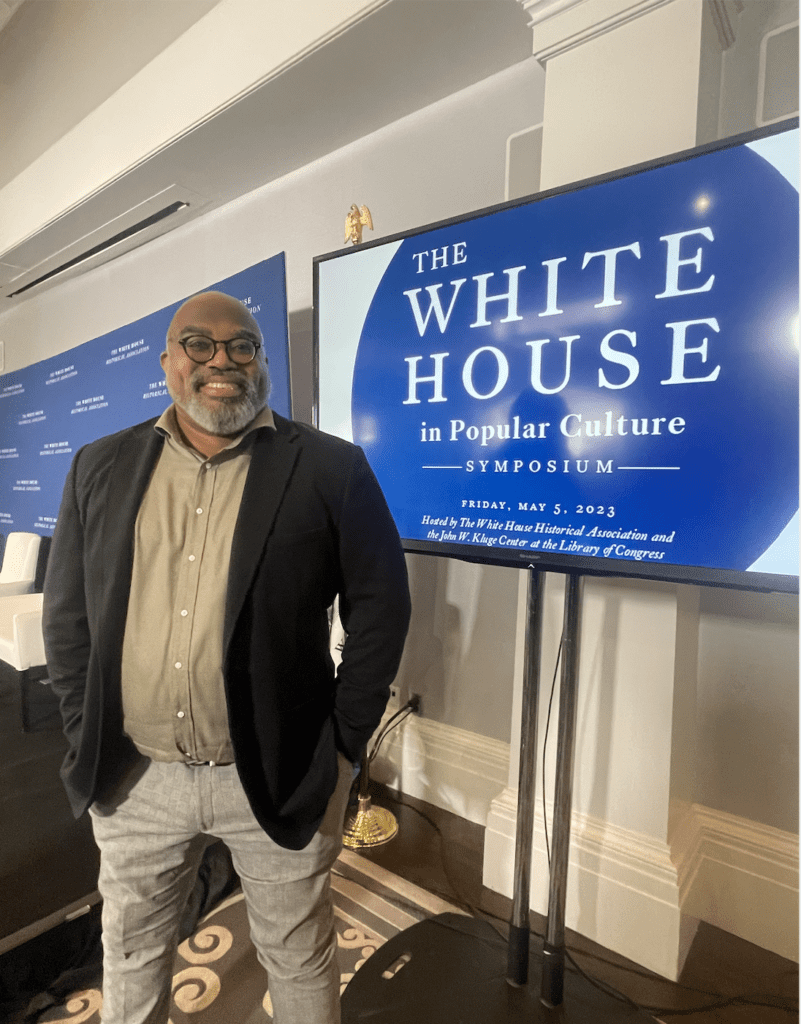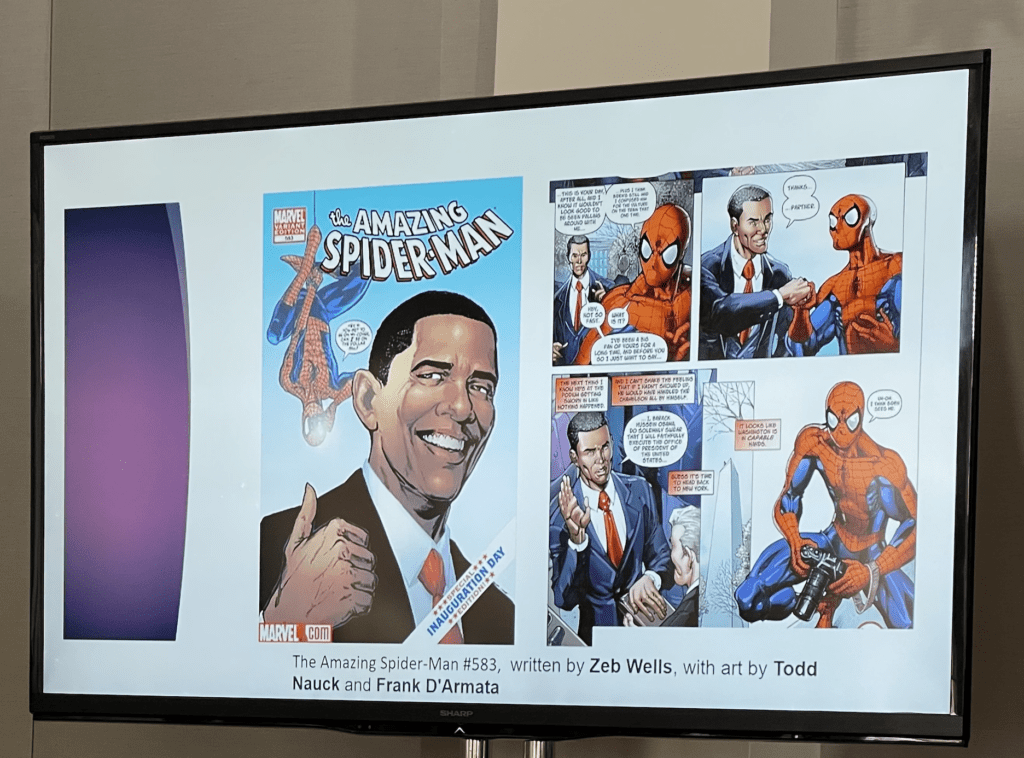Symposium Presents ‘The White House in Popular Culture’
By • May 11, 2023 0 2914

The White House. Perhaps no home in America holds as much sway in the public’s imagination.
On Friday May 5th, The White House Historical Association (WHHA) in partnership with the John W. Kluge Center at the Library of Congress (LOC) presented their annual symposium with the theme “The White House in Popular Culture” at the historic Decatur House at 748 Jackson Place NW.
This all-day event featured moderated panels of prominent scholars, historians, entertainment industry professionals and actors. They thoughtfully discussed the intersections of the White House, the presidency and popular culture in segments focusing on cartoons and comics, television and movies. Experts included: actress Gloria Reuben who portrayed Elizabeth Keckley in the 2012 film “Lincoln,” best-selling author and presidential historian, Dr. Tevi Troy, Washington consultant for HBO, Tammy Haddad, and Jesse Holland, author of “Black Panther: Who Is The Black Panther?” LOC curators and experts from the Kluge Center as well as several notable professors of American politics and culture were also part of the mix.

Jesse Holland, journalist, historian, and author of several books including, “Black Panther: Who Is the Black Panther?” Photo by Allyson Burkhardt.
The panels began with a chronology of depictions starting in the late 19th-century as illustrators worked to establish the visual representation of the White House across the country. Once such depictions became widely recognized, The People’s House, from then on, became the focus of controversies surrounding Americans’ rights of free speech and public assembly and also the focal point for decision-making by the nation’s Chief Executive.
Did you know that the location of the White House sketch or cartoon would set its tone? Satirical scenes from the south lawn signified dissent. The rose garden implied a contented state as in “everything coming up roses,’ while the north side suggested that presidential powers would strengthen or could overtake the country. Editorial cartoonists were in fact seasoned journalists responding to the times and became an integral part of the newsroom. One may remember that Bob Woodward and Carl Bernstein shared a Pulitzer Prize with famed editorial cartoonist Herbert L. Block (“Herblock”) and their Washington Post editor Roger Wilkins for exposing the story of the Watergate break-in and coverup.
The discussions moved onto The Comic Book Era born during the Second World War. “The Justice Society” was formed to protect the world with the “DC Universe” being the oldest of the universes. As the only president to ‘admit’ his appreciation for comics, President Obama was introduced into the series with superhero powers. Comics go on to include educational content such as presidential biographies for school children.

As the only president to ‘admit’ his appreciation for comics, President Obama was introduced into the series with superhero powers…
As we arrive in the media age, the Commander-in-Chief is frequently characterized in television series. Launched in 1999, NBC’s “The West Wing” is most notably an acclaimed and provocative series that developed from an office drama into the aspirational portrayal of presidential vulnerability and grounded leadership. The realistic storylines featuring fictional president Josiah “Jed” Bartlett played by actor Martin Sheen have become subject matter for a political history course in American History for its social commentary on the 90s; and is always a class at full capacity. Very much on the flip side, however, we see the irreverent political comedy “VEEP” starring Julia Louis-Dreyfus as the fictional (and hilarious) Vice President Selina Meyer.
Such fictionalized depictions of White House politics come to represent Americans’ hopes and dreams for what goes on inside the People’s House. It’s what we hope politics are not — but are afraid that it actually is. American television audiences are quite sophisticated, however, and require intellectual and historical accuracy. So, Hollywood retains many inside-the-beltway politicos to serve as on-set advisors to realistically detail and contextualize the narratives.
In popular culture, the prominence of the presidential office continues to provide highly-consumed content. However, the relationship between American government and the media is symbiotic. In the Information Age, one can argue the constant news cycle and heightened attention to civil knowledge influences the quality of leadership and how its performance is measured today.

